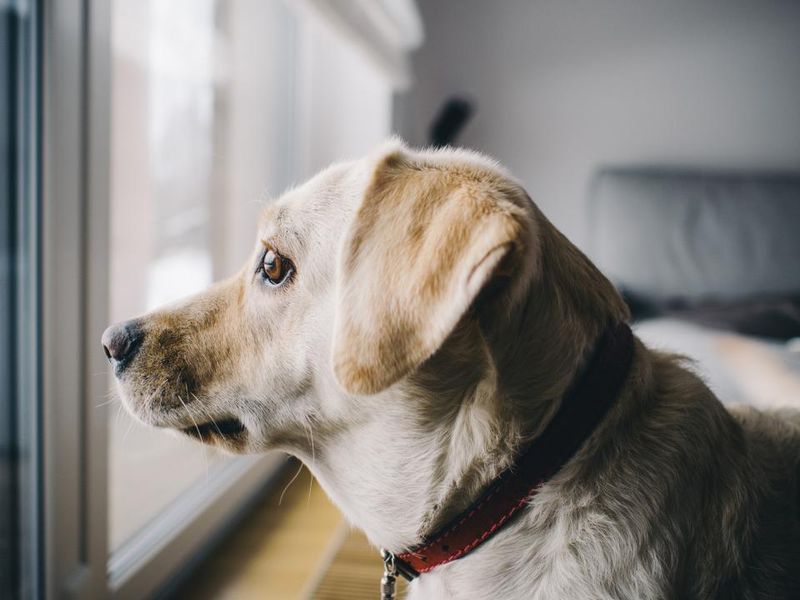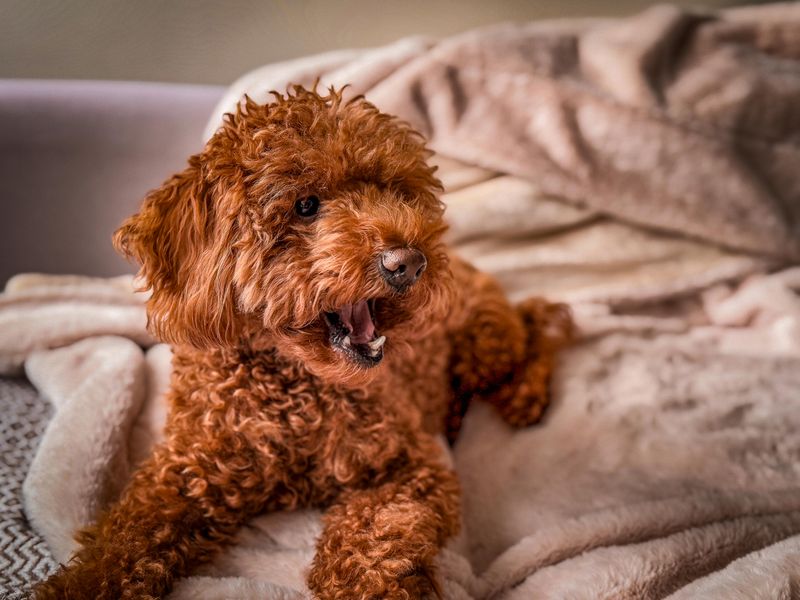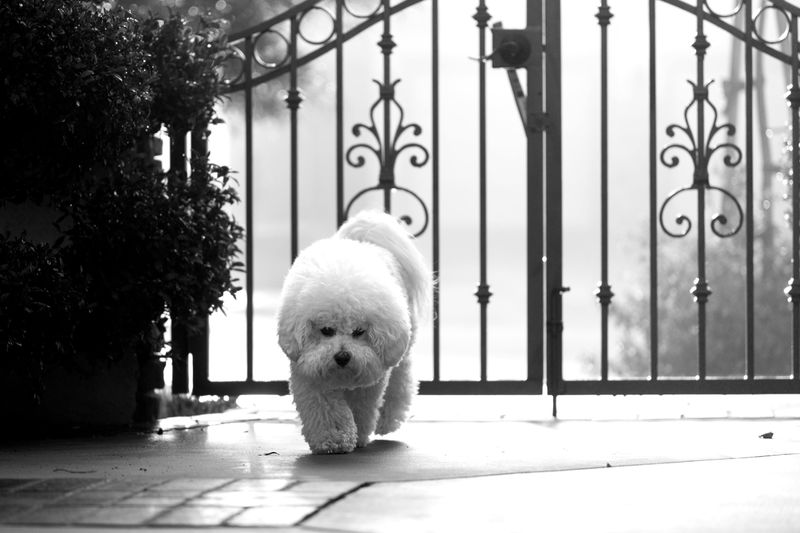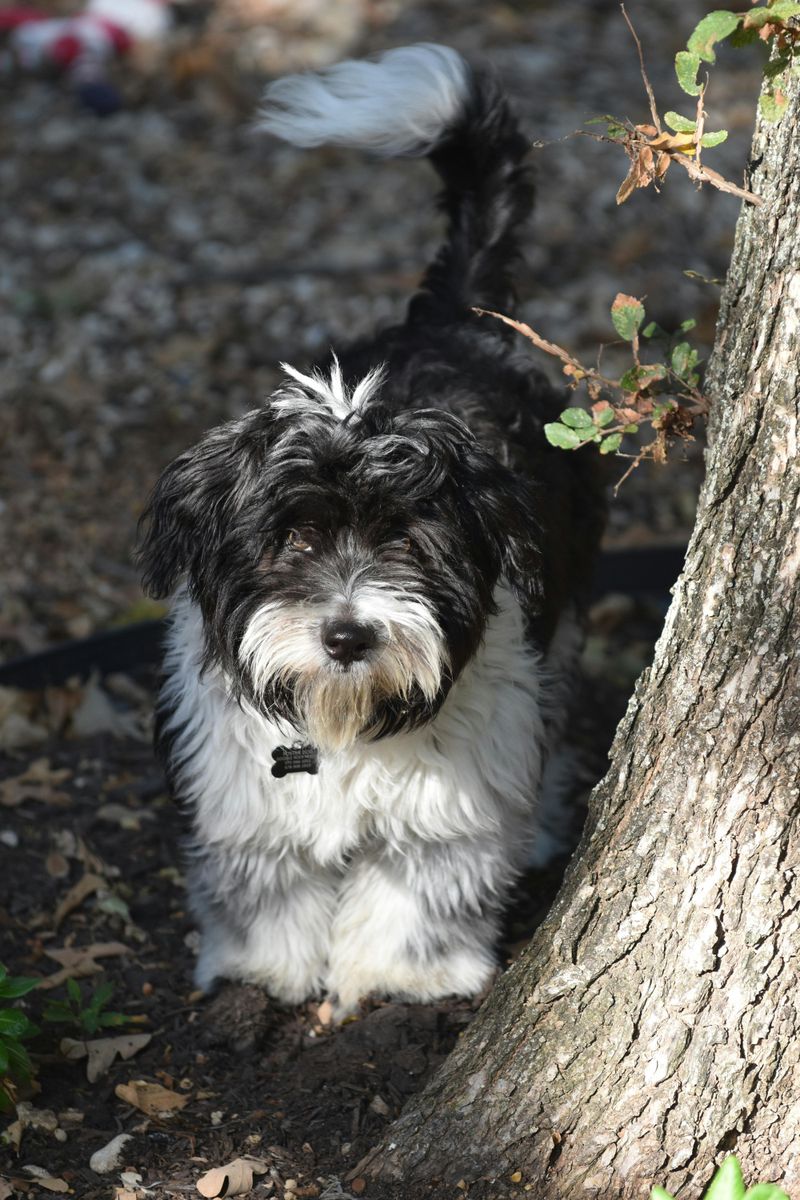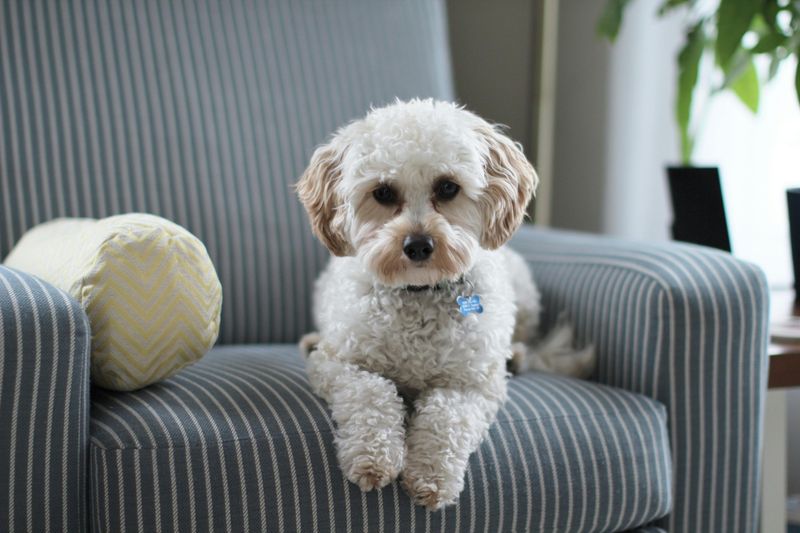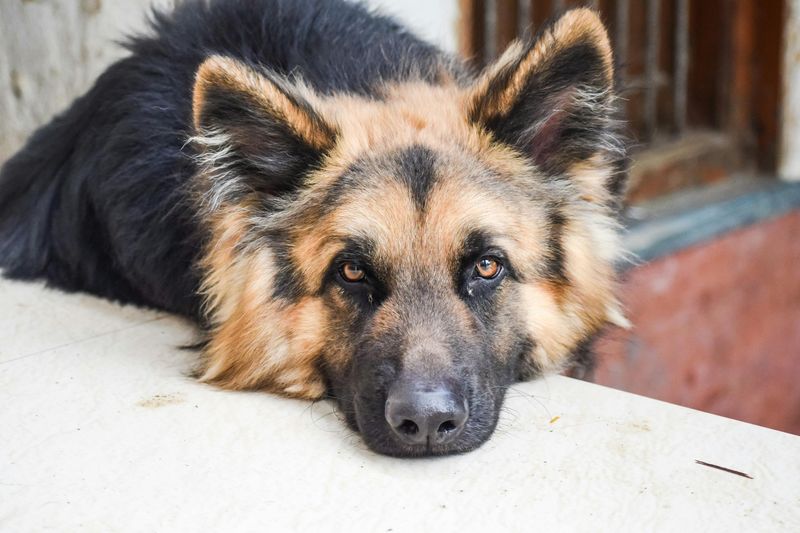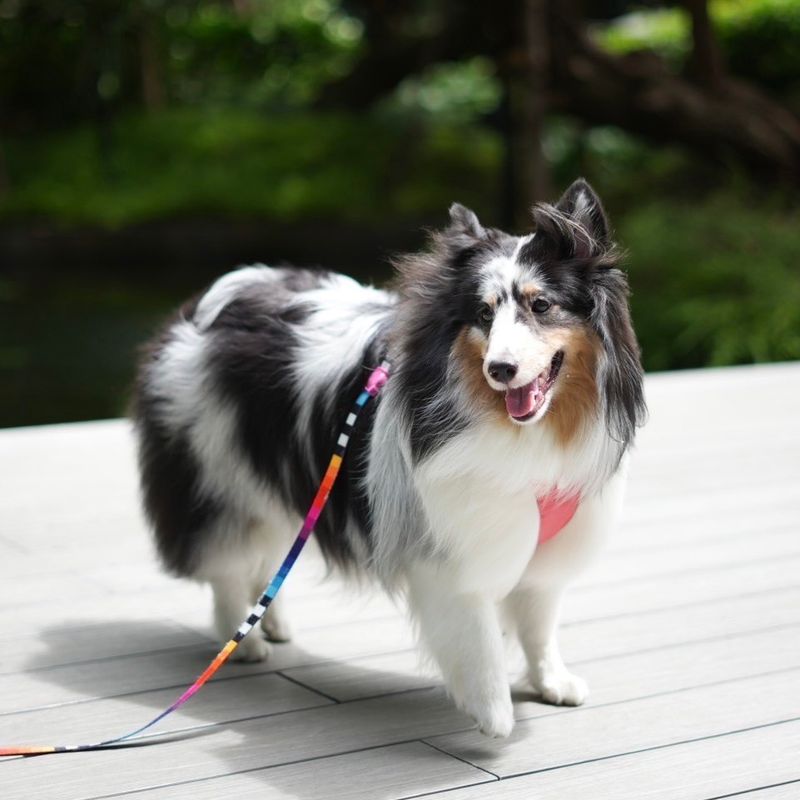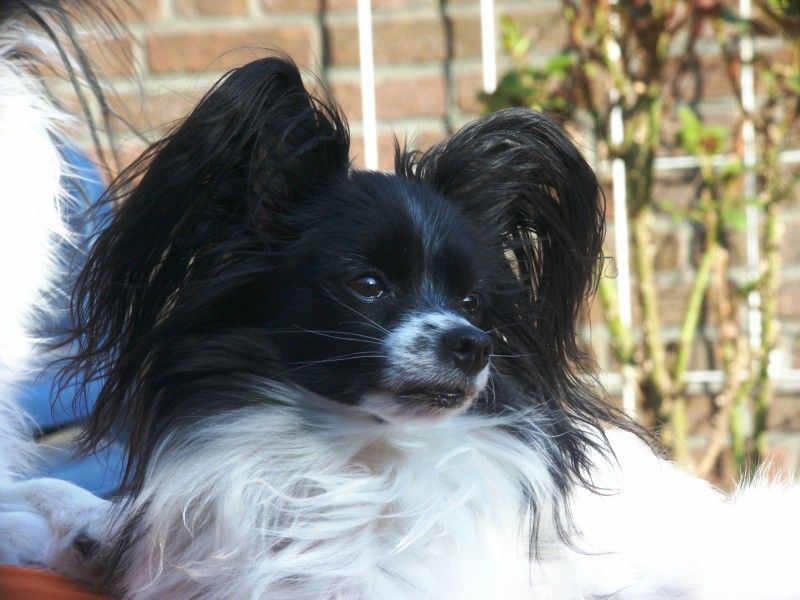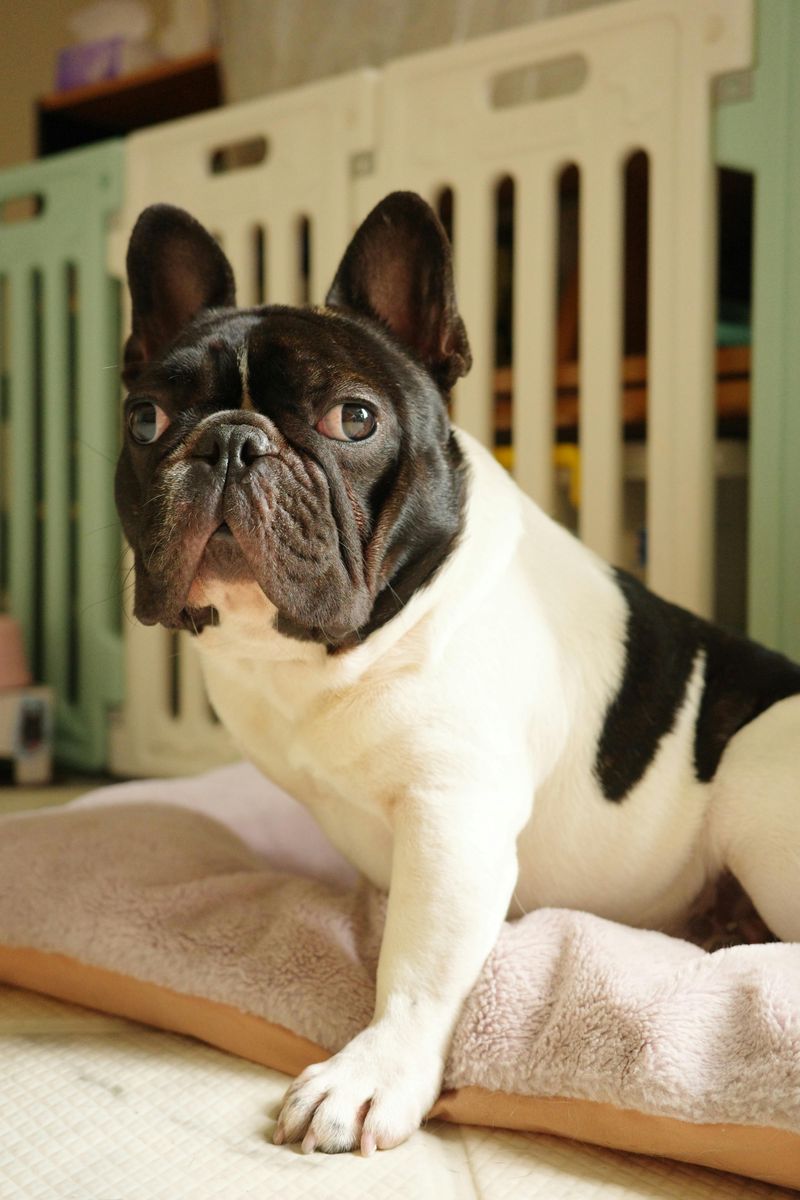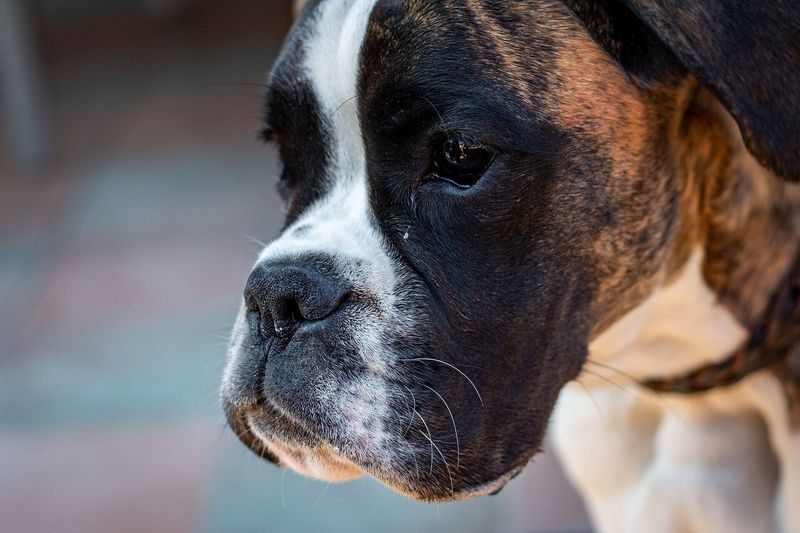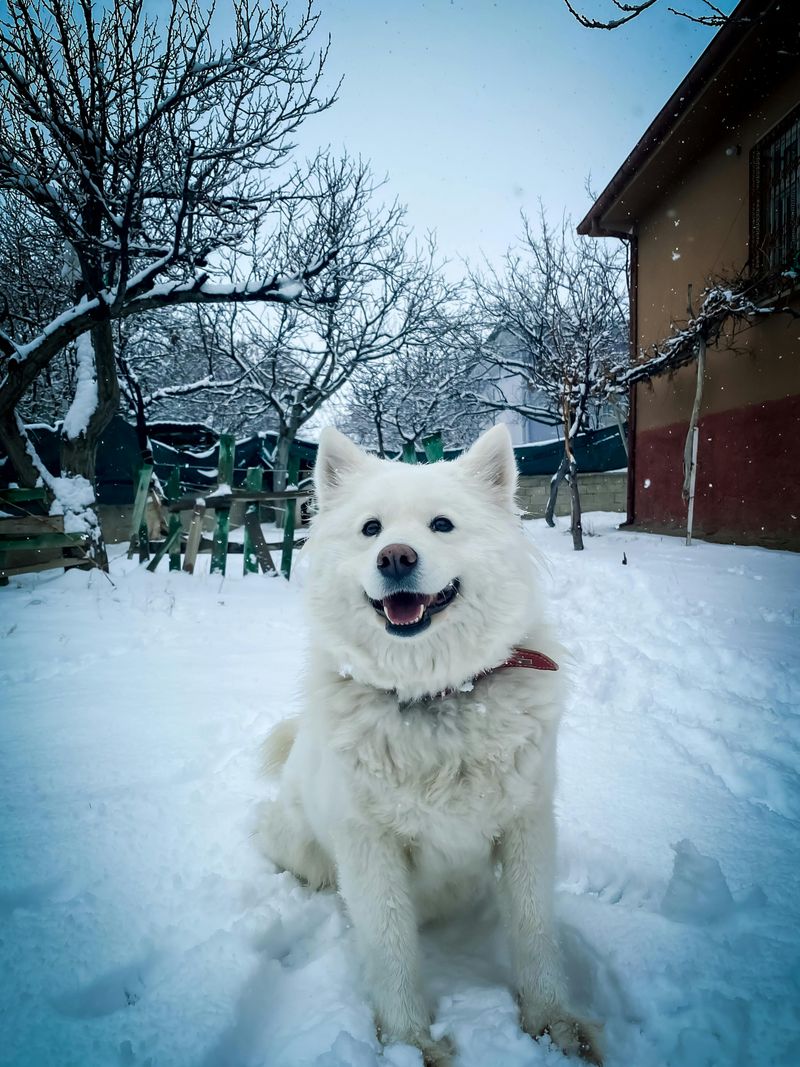Dogs are known for their companionship, but some breeds find it challenging to cope without human presence. Here are 23 dog breeds that tend to struggle when left home alone.
Golden Retriever
Golden Retrievers are the epitome of friendliness and warmth. Their eagerness for love makes solitude hard to bear. They may become anxious or engage in mischievous acts when left alone.
To keep a Golden happy, companionship is key. Their joyful nature shines brightest with an engaged family. If left solo, they might drop their usual smile.
Did you know? Goldens were originally bred to retrieve games for hunters. This strong working bond with humans means they crave company. If you have a Golden, be prepared for a shadow that follows you everywhere.
Border Collie
The Border Collie, renowned for its intelligence, needs constant mental stimulation. Their sharp minds and energetic bodies find solitude dull, leading to restlessness and potential trouble.
Originally bred for herding, they’re happiest with tasks to perform. Without them, they might channel their energy into unwanted behaviors. Engage their minds with interactive toys to alleviate the alone-time blues.
A Border Collie’s dedication is unparalleled, making them wonderful companions. Just remember, their loyalty translates into a deep need for human interaction. Provide them with attention or risk a very bored pup.
Australian Shepherd
Australian Shepherds are known for their keen intelligence and energetic disposition. Their need for physical activity and mental engagement means they struggle with isolation.
These dogs crave interaction, often displaying destructive tendencies if left unsupervised. A bored Aussie can become a whirlwind of chaos, so keep their minds and bodies occupied.
Interestingly, Australian Shepherds were actually developed in the United States, despite their name. Their herding roots make them essential companions, needing a partner in crime to share their day. Prepare to entertain them, or they might entertain themselves in unexpected ways.
Labrador Retriever
The Labrador Retriever is not just America’s favorite; it’s also incredibly affectionate. Known for their loyalty and gentle disposition, they thrive on human interaction. Leaving them alone often results in anxiety, shown through destructive behavior or persistent barking.
These outgoing dogs need constant companionship. An active lifestyle suits them well, as it distracts from loneliness. Consider a dog walker or pet sitter if you’re away frequently.
Interestingly, Labs were bred for retrieving in water, which adds to their energetic nature. So, if you’re a busy bee, ensure your Lab has company or be prepared for a less-than-happy pooch.
Cavalier King Charles Spaniel
Cavalier King Charles Spaniels adore being in the company of their human family. Their affectionate nature makes them vulnerable to loneliness if left alone.
These charming dogs thrive in social environments. Their gentle demeanor and loving eyes often express sadness when their humans are away.
Their history as lapdogs for royals adds to their dependency on human interaction. Cavaliers were bred to be companions, so they naturally seek attention and companionship. Leaving them alone for long periods can lead to separation anxiety, manifesting in unwanted behaviors.
Poodle
Poodles, whether Standard, Miniature, or Toy, are clever and lively. Their intelligence makes them sensitive to solitude, often leading to bouts of separation anxiety.
When left alone, Poodles may become restless or anxious. They require ample mental stimulation to stay content. Interactive toys can be a great way to keep them engaged.
Historically, Poodles were water retrievers, showcasing their versatility and need for activity. This active past fuels their present-day need for companionship and stimulation. Leaving a Poodle alone frequently may lead to a very unhappy pup.
Vizsla
The Vizsla is known as a ‘Velcro’ dog due to its close attachment to its owner. Their affectionate and social nature makes being alone particularly challenging.
These dogs are happiest when involved in activities with their humans. Long periods of solitude can lead to anxiety and destructive behavior.
Originally bred in Hungary for hunting, their role necessitated a close bond with people. Today, they maintain this need for closeness and companionship. If you have a Vizsla, ensuring they have company can prevent feelings of loneliness.
Bichon Frise
The Bichon Frise is a cheerful little dog with a big personality. Their sociable and friendly nature makes them ill-suited to spending long hours alone.
These dogs thrive on human interaction. Without it, they may resort to barking or other anxious behaviors. Their happiness is often directly tied to their time spent with family.
Originating from the Mediterranean, Bichons were popular among sailors and nobility, always in close company. This history contributes to their need for companionship. If left alone too often, a Bichon might not be its usual, bubbly self.
Havanese
Havanese dogs are known for their playful and affectionate nature. This breed thrives on social interaction, making solitude a potential source of distress.
Without company, a Havanese might become anxious or resort to undesirable behaviors. They require engagement and companionship to be at their best.
Originally from Cuba, the Havanese served as lapdogs for the wealthy, always surrounded by people. This history makes them particularly attached to their human family. Being left alone frequently can cause a Havanese to feel quite isolated.
Cocker Spaniel
Cocker Spaniels are known for their gentle and playful demeanor. Their love for companionship makes long periods of solitude difficult to endure.
These dogs thrive in an interactive environment. Without it, they may experience separation anxiety, leading to unwanted behaviors.
Cocker Spaniels were bred as hunting dogs, necessitating a close relationship with their owners. This bond makes them sensitive to being left alone. To keep a Cocker Spaniel content, ensure they have plenty of company or activities to engage in.
Shih Tzu
Shih Tzus are known for their delightful personalities and affectionate nature. Their love for human contact makes long periods of solitude challenging.
These little companions thrive in social settings. Without the presence of their family, they might display signs of anxiety or stress.
Historically, Shih Tzus were bred as royal companions in China, always surrounded by people. This heritage makes them particularly reliant on human interaction. Leaving a Shih Tzu alone frequently can lead to emotional distress and behavioral issues.
Maltese
The Maltese is cherished for its gentle nature and loving disposition. Their desire for companionship makes being alone a potential source of anxiety.
These small dogs thrive on interaction and attention. Without it, they might show signs of stress or engage in unwanted behaviors.
With a long history as lapdogs for aristocrats, Maltese dogs are accustomed to constant companionship. Leaving them alone for extended periods can lead to emotional distress. Ensuring they have company will keep a Maltese joyful and content.
German Shepherd
German Shepherds, known for their loyalty and intelligence, form strong bonds with their families. Being alone for long stretches can lead to anxiety and restlessness.
These dogs need mental and physical stimulation to stay happy. Without it, they might resort to destructive behaviors out of boredom or stress.
As a breed developed for work, German Shepherds thrive with tasks and companionship. Their dedication to their owners requires attention and interaction. Leaving them alone too often can result in an unhappy pup. Regular engagement is key to their well-being.
Shetland Sheepdog
Shetland Sheepdogs are known for their intelligence and loyalty. Their deep attachment to family makes them vulnerable to loneliness when left alone.
These dogs require mental and physical engagement. Without it, they might become anxious or display unwanted behaviors.
Originally bred for herding, Shelties need constant interaction and purpose. Their historical role emphasizes companionship, making solitude difficult. Ensure they have company, or they might not be as cheerful.
Papillon
Papillons are lively, intelligent, and affectionate companions. Their need for social interaction makes loneliness particularly challenging.
Without company, Papillons can become anxious and stressed. They thrive on engagement and attention from their human family.
Named for their butterfly-like ears, Papillons were popular among European nobles, often seen as lap companions. This history contributes to their need for constant presence. Leaving them alone frequently can lead to a less happy Papillon.
Dachshund
Dachshunds are known for their spunky personalities and strong attachment to their families. Solitude can be difficult, often causing stress and anxiety.
These curious dogs need engagement and companionship. Without it, they might resort to barking or destructive behaviors.
Originally bred for hunting, Dachshunds have a strong bond with their humans. Their need for interaction makes frequent alone time challenging. Providing company or activities can keep them content and happy.
Pomeranian
Pomeranians, despite their small size, have vibrant personalities and a strong desire for companionship. Long periods of solitude can lead to stress and anxiety.
These spirited dogs thrive on interaction and attention. Without it, they might bark excessively or display other anxious behaviors.
Originating from the Spitz family, Pomeranians have a rich history of companionship. Their need for human interaction makes frequent alone time difficult. Keeping them engaged with activities or company is essential for their happiness.
Italian Greyhound
Italian Greyhounds are known for their elegance and gentle nature. Their strong attachment to their owners makes solitude a source of potential anxiety.
These graceful dogs require companionship and engagement. Without it, they might become anxious or display unwanted behaviors.
With a history as companions to nobility, Italian Greyhounds are accustomed to being by their human’s side. Leaving them alone frequently can lead to emotional distress. Ensuring they have company will keep them content and relaxed.
French Bulldog
French Bulldogs are charming and affectionate, known for their love of human company. Long periods of solitude can lead to anxiety and stress.
These dogs thrive on attention and interaction. Without it, they might become restless or exhibit unwanted behaviors.
Despite their small stature, French Bulldogs have a big personality and a strong desire for companionship. Frequent alone time can be challenging for them, making it essential to provide regular engagement or company.
Boston Terrier
Boston Terriers are friendly and outgoing, often forming strong bonds with their families. Solitude can be difficult, leading to anxiety and stress.
These social dogs need engagement and companionship to stay happy. Without it, they might resort to barking or other anxious behaviors.
Boston Terriers, with their distinctive tuxedo markings, are known as “American Gentlemen.” Their need for interaction makes frequent alone time challenging. Providing company or activities can help keep them content and well-adjusted.
Chihuahua
Despite their tiny size, Chihuahuas have big hearts and a strong desire for companionship. Being alone for long stretches can lead to anxiety.
These spirited dogs thrive on attention and interaction. Without it, they might become anxious or engage in unwanted behaviors.
Chihuahuas, known for their bold personalities, have a long history of companionship. Frequent alone time can be challenging, making it essential to ensure they have regular engagement or company to keep them happy and content.
Boxer
Boxers are known for their playful and energetic nature, forming strong attachments with their families. Long periods of solitude can lead to stress and anxiety.
These active dogs require engagement and companionship to stay happy. Without it, they might resort to undesirable behaviors.
Originally bred for working, Boxers have a strong bond with their humans, making frequent alone time challenging. Providing regular interaction or activities can help keep them content and well-adjusted.
Samoyed
Samoyeds are known for their friendly and sociable nature, thriving on companionship. Long periods of solitude can lead to anxiety and stress.
These fluffy dogs require engagement and interaction to stay happy. Without it, they might become restless or display unwanted behaviors.
With a history of working closely with humans, Samoyeds form strong bonds with their families. Frequent alone time can be challenging, making it essential to ensure they have regular engagement or company to keep them content and well-adjusted.




